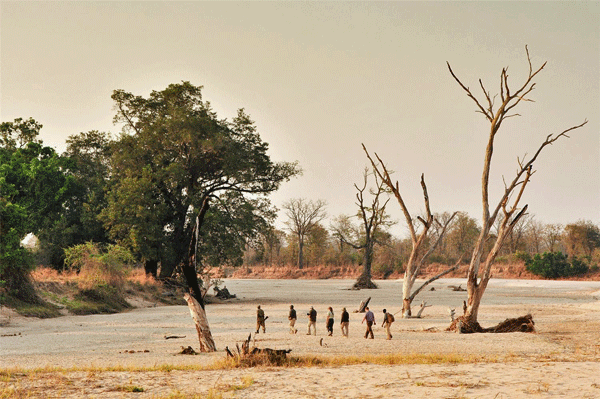To follow in the footsteps of David Livingstone would take one on a journey along the thundering Zambezi River, from the exceptional might of Victoria Falls to Lake Malawi and the great lakes between Zambia and the Democratic Republic of Congo. Developing a unique understanding between religion and science, Livingstone set off to southern Africa as a missionary, but his eagerness for geographical discovery and progressive attitude towards science saw his dismissal from the church. Undeniably tempted to explore and discover the river-ways of Africa and open this underdeveloped land to commercial trade, Livingstone set off to explore the African interior. The late 19th century unearthed the Zambezi, Mosi-oa-Tunya (The Smoke that Thunders), and Lake Malawi, while the quest to encounter the source of the Nile was a pursuit Livingstone saw worth dying for.
Always having kept a journal and being a man of intellect and poetic communication, Livingstone’s findings were recorded with graceful regard and his assiduous efforts to uncover the unknown made him one of the most admired national heroes of his time. Indeed, memorials and museums, quotations and colloquialisms associated with this historic figure are still celebrated today, in and around the Zambian town that was named after him.
The Smoke that Thunders was first admired from the vantage point of Livingstone’s four-oared boat bobbing on the surface of the Zambezi River; appearing in the form smoke rising from the depths of a rocky crevasse. The colossal avalanche of water plunging heavily between two African countries was a sight so astonishing that the avid explorer respectfully introduced it to the European world as Victoria Falls, after his reigning Queen Victoria. Acknowledged as an architect of discovery and a crusader against the slave trade, Britain’s monarchy authorised Livingstone’s return to Africa, which led him on a determined path to discover the source of the Nile; however, he would not live as long as to realise the aim of his expedition. Throughout his later life spent on the waterways of Zambia and Malawi, he discovered for Western science numerous geographical features, such as Lake Malawi, and Lake Bangweulu – regions that had previously appeared as the unadulterated unknown.
Today, the sense of history and natural discovery is maintained in wildlife areas as treasured the Zambezi River. Reminders of Dr David Livingstone stand proud, and the merciless conditions this explorer endured until the end of his adventurous life are immortalised in the form of a memorial statue and the naming of Livingstone town at the site of Victoria Falls. The Lower Zambezi and South Luangwa National Parks, as well as, Lake Malawi are home to an array of African animals, sought after by local and international visitors alike. The lodges and camps are constructed in celebration of the natural beauty and diversity of the area, while passionate guides and hosts conduct enthralling tours of lake and land that vaunt the courageous undertakings of the explorer himself.

South Luangwa National Park is the home of safari on foot with a concentration of game along the Luangwa River and ox-bow lagoons amongst the most unspoilt of African wilderness. With over 60 species of mammals and over 400 species of birds, the pathways of Livingstone’s ventures have been maintained in their unbelievable natural capacity. Luwi and Nsolo Bush Camps in the South Luangwa have recently become the shared host to the endangered African wild dog; a species that was entirely wiped out due to an anthrax outbreak in the late 1980s. The exhilaration of canoeing alongside elephants in the Zambezi River and watching huge herds of buffalo trundle through the nourished woodland of the Lower Zambezi National Park, is an experience yet to be rivalled. Resting tested muscles and tired eyes in the luxurious cottages of Tongabezi and Chongwe River Camp, amasses to the wealth of a Zambian safari.
Leaving the richness of Zambia behind, Livingstone’s 150 year old oar-strokes are followed toward the great Lake Malawi, a mass of landlocked water that is proudly glorified as an inland sea. Housing a plethora of fish within it and an abundance of fishing villages ashore of it, this great lake is recognised as the crown of Malawi’s natural attractions. Likoma Island sets its solid roots and beautiful beaches in the midst of this freshwater ocean, scooping up water-sport fanatics and luxury seekers and hosting them at its award-winning Kaya Mawa Lodge.
Find this luxury combination tour of Livingstone’s famously discovered land and lakes at Sun Safaris, as we provide the reminiscence of history via the exploration of Africa’s unblemished wilderness.







